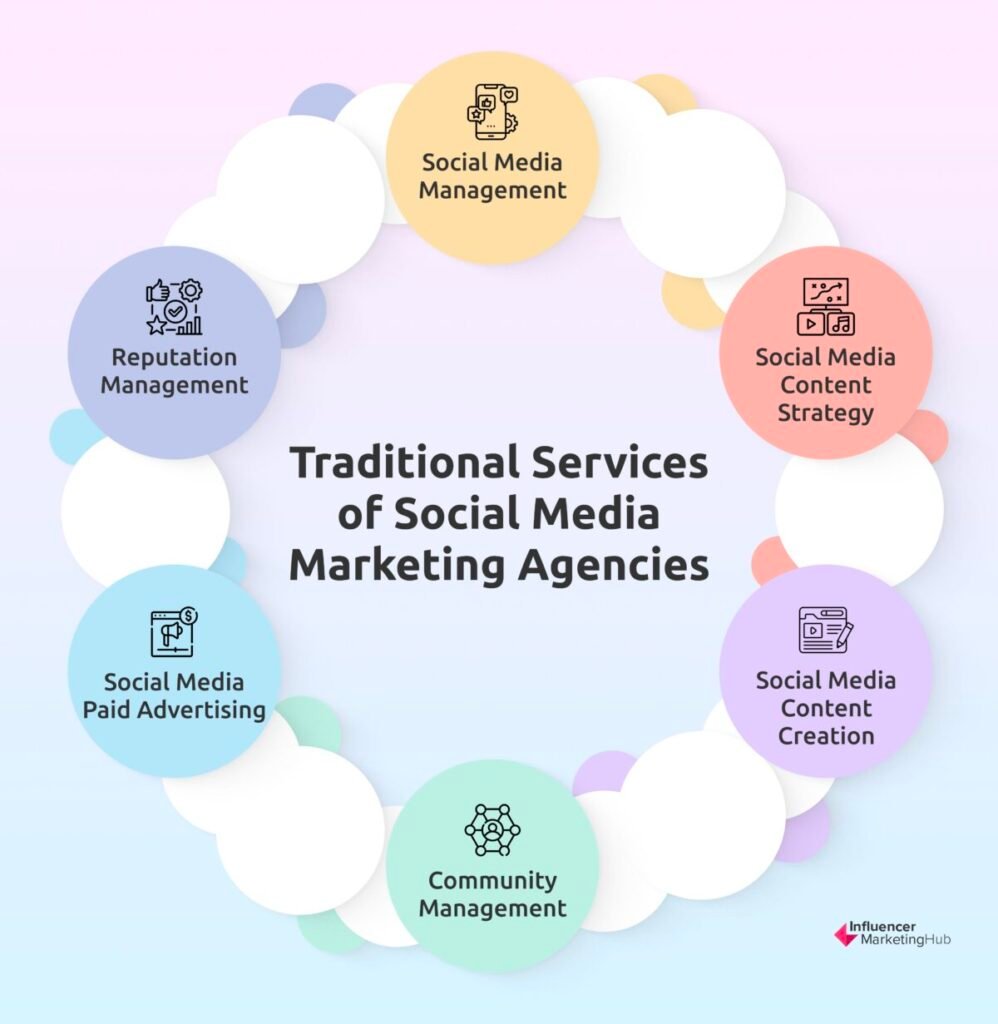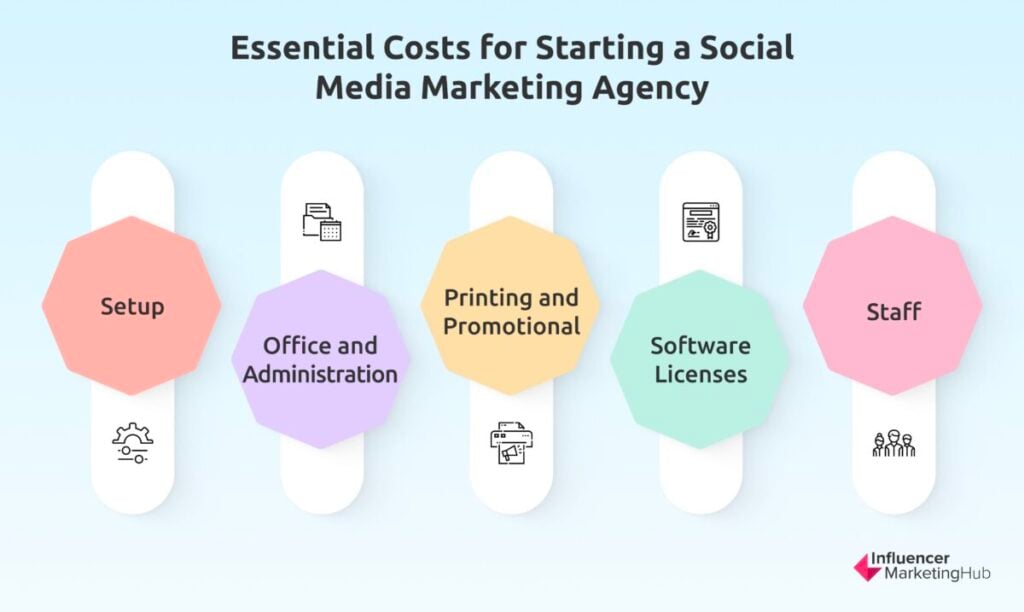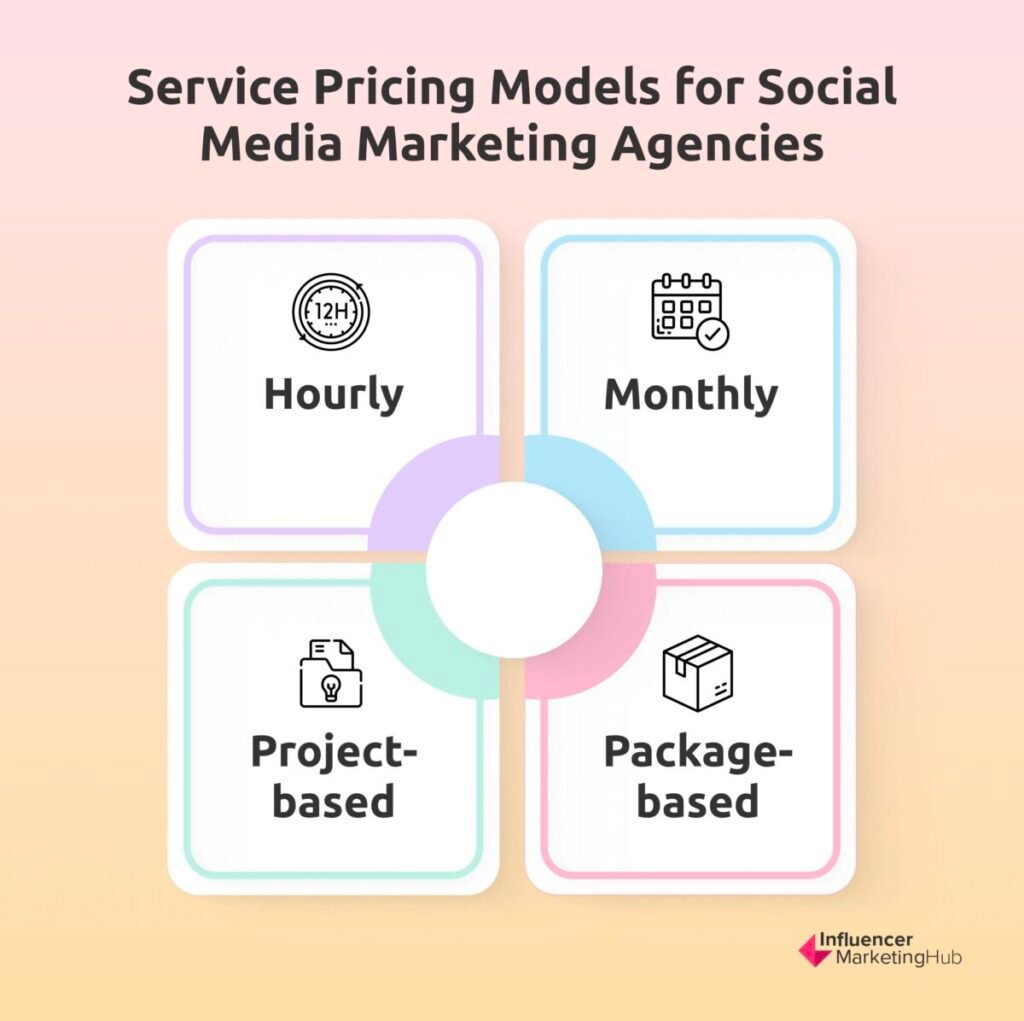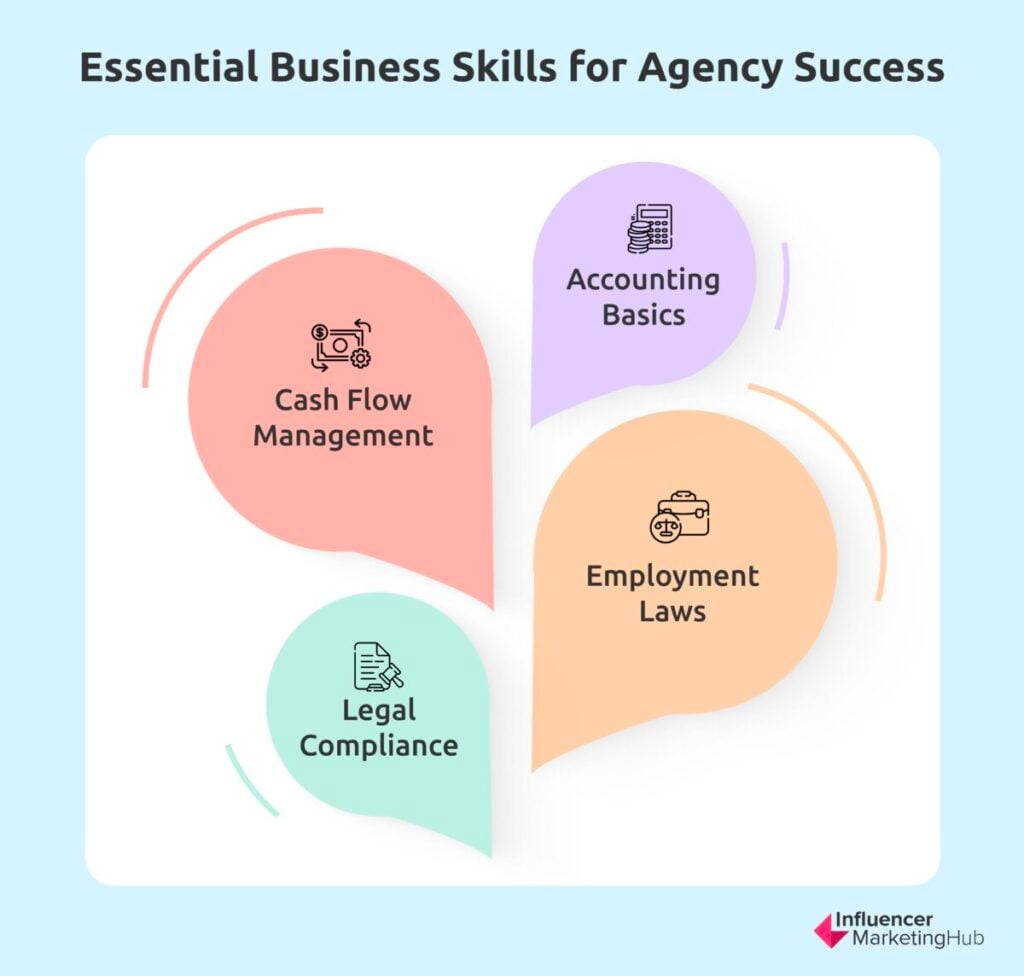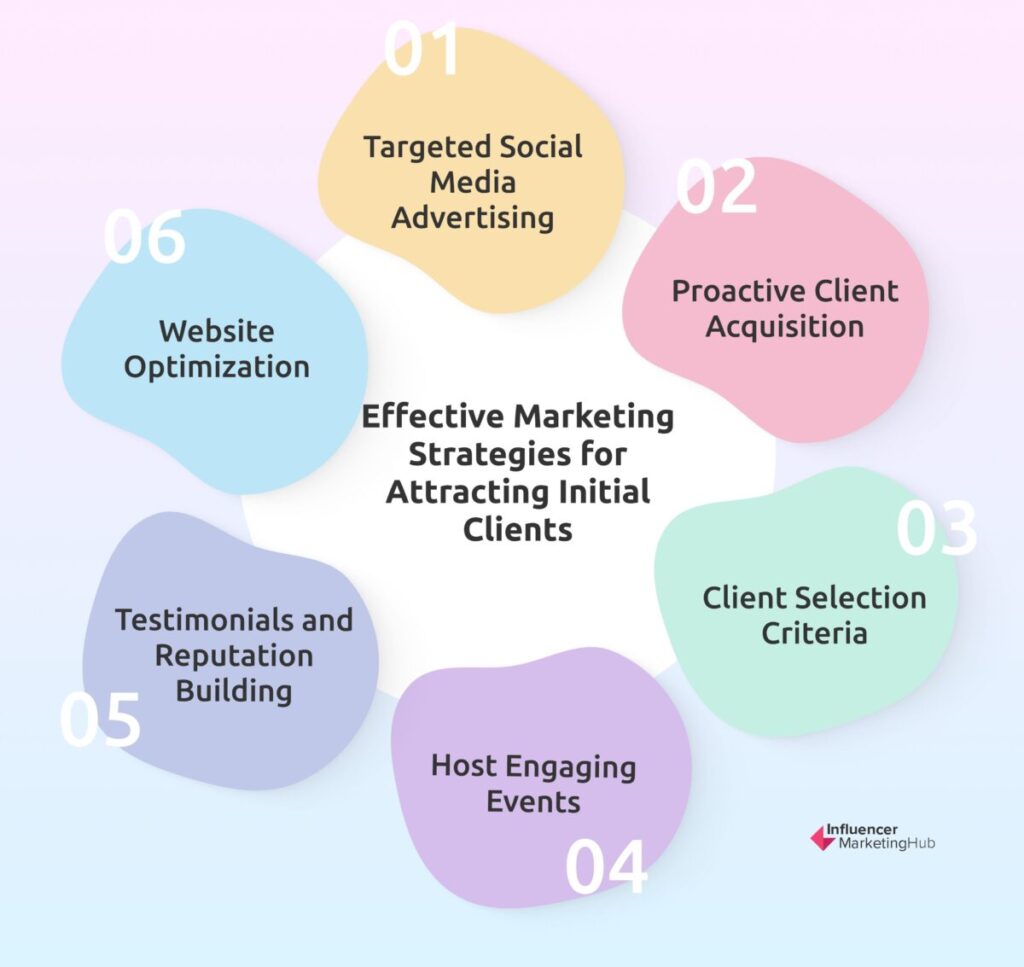As with launching any business, starting a social media marketing agency can be daunting to the inexperienced. You can’t just come in, create a few social pages, and expect clients to come flocking. You need to plan and consider all possible contingencies for your social media marketing agency before you begin touting for work.
In this post, we examine how to start a social media marketing agency, and all the steps you should go through to ensure that you don’t become just another failed business clogging up the statistics. According to the Bureau of Labor Statistics. 40% of US businesses fail within the first three years, 49.9% within five years, and 65.8% within 10 years. The better you plan your social media marketing agency, the greater the odds that you will be one of the success cases.
Businesses are rapidly discovering the importance of social media as a marketing channel. As we saw in our most recent Social Media Marketing Benchmark Report, people spend on average 2 hours 24 minutes per day using social media. A recent survey found chat or messaging platforms to be the most used non-gaming apps/websites (95%), followed closely by social networks (94.5%). Social and chat/messaging apps take up eight of the Top 10 positions in terms of monthly active users.
Yet few businesses, even those predominantly staffed by Gen-Z, can claim to be social media or marketing experts. Many prefer to outsource their marketing, leaving it to the specialists, rather than tying up internal resources. There is a clear demand for knowledgeable social media marketing agencies, who understand the intricacies of the various channels and can distinguish their TikToks from their Threads from their Snapchats. Agencies know the right types of posts to create and schedule (60% of all social posts are scheduled in advance). They understand that 54% of all posts now feature pictures, 15% include videos, 12% link posts, 8% carousels, and a mere 9% are just text. There are many opportunities for you to succeed as a start-up social media marketing agency.
- Determine Your Areas of Specialty and Service
- What Makes You Different from Everybody Else?
- Turn Your Point of Difference into Specific Services
- Create a Presence for Your Agency Before You Take on Clients
- What Costs Will You Face?
- Determine Your Pricing Levels
- Decide Upon the Strategies Your Social Media Marketing Agency Will Follow
- Prepare a Business Plan for Your Social Media Marketing Agency
- Learn the Core Business Skills Necessary for Your Success
- Build a Team with the Necessary Skill Set
- Automate Your Processes to Ensure Everything Runs Smoothly
- Launch Your Social Media Marketing Agency
- Market Your Agency to Find Your Initial Clients
- Have a Smooth Client Onboarding Process in Place
- Track Your Progress and Prepare for Growth
- Wrapping Things Up
Determine Your Areas of Specialty and Service
You might be tempted to take any work coming your way in your early days as a social media marketing agency. However, that isn’t how successful agencies operate, unless they operate at a sufficiently large scale to employ many talented specialists.
By specializing you can focus on a particular focus market, learning their wishes and adapting your offers to meet their needs. That doesn’t mean that you must restrict yourself to just one social platform (although some agencies do). However, you should limit your offerings to what you (and your initial team) can realistically master.
Whether you intend to operate your social media marketing agency as a new business or add it to the services offered by an existing one, you first need to determine who your target market should be. You can’t just set up shop in the expectation that customers will turn up. You first need to decide who precisely are the clients you prefer to attract.
What Makes You Different from Everybody Else?
Depending on the niche you’ve chosen, your target audience, and your location (if you don’t intend to operate completely virtually), you will probably face considerable competition in your new endeavor. And this is probably still true if you operate from some remote area lacking social media marketing agencies. You have to consider clients doing their own social media marketing, instead of using an agency, as effectively being competitors too.
Therefore, you need to offer some point of difference compared to everybody else. Why should businesses contract you to provide them with social media services instead of working with another agency, or doing the work themselves?
You need to create a value proposition. Shopify defines a value proposition as being “a concise statement that communicates the unique benefits and value a product or service offers to its target customers. It highlights the specific problem it solves, the advantages it provides, and why it is superior to its competitors”. If you can’t describe what somebody should pay you for a service, how can you expect them to have confidence in your abilities?
Your value proposition should meet three criteria:
- It’s specific – exactly what benefits are you offering your target clients?
- It’s pain-focused – how will the social services you offer improve things for your clients?
- It’s exclusive – how will your offer differ from those of your competitors (and the status quo where a firm doesn’t use a social media marketing agency)?
Shopify stresses that “your value proposition should focus on the superpowers that potential customers get, not the product.” In this case, that means that your value proposition isn’t specifically the services that you will be offering. Instead, you will want to look at what your clients will gain from receiving your services, compared to their current situation. What meaningful problem can you solve for them?
Your agency’s value proposition will probably differ from your mission statement, which will most likely be broader, giving context to your agency’s overall goals.
One of the first decisions you will have to make is whether you intend to operate as a specialist (e.g. a TikTok marketing agency, or an agency focusing on clients in a particular industry) or a generalist, offering a wide range of services to a broad span of potential clients. To be a generalist, however, you will need to be considerably well-resourced.
Turn Your Point of Difference into Specific Services
Having decided where you want your agency to focus, you will need to decide the specific services you intend to offer. For example, do you intend to focus solely on content creation for your chosen social network(s), management of client accounts, community management, running PPC advertising campaigns on behalf of your clients, or perhaps some combination of these activities? Some agencies even move outside the traditional boundaries to include ancillary activities such as influencer marketing and crisis management.
Perhaps the most traditional split is to offer services relating to (all or some of):
- Social Media Management
- Social Media Content Strategy
- Social Media Content Creation
- Community Management
- Social Media Paid Advertising
- Reputation Management
You might consider splitting these services into packages that you can offer at different price points.
Vireo Video provides an example of an agency that focuses on a single platform (YouTube) and focuses its services around that. When you look at the agency’s website, you can see that it provides five interrelated options:
- YouTube Growth Marketing Services
- YouTube Advertising Services
- YouTube Marketing Strategy Services
- YouTube Video SEO Optimization
- YouTube Influencer Marketing Services
Create a Presence for Your Agency Before You Take on Clients
Once you’ve decided on your target market and finalized details like your business name and logo, you should set up your agency’s website and social accounts and begin posting on the most relevant social channels. You can begin this process well before you’re ready to take on clients.
You can use your agency's social accounts as a storefront demonstration for the types of content you make and the strategies you will follow with your clients. In the meantime, before you’re ready to “go live” as a business, you can use your website and social accounts to build up goodwill and begin to establish a presence. Consider starting up a blog to create valuable content on your company website. You might even begin to become known as a subject expert on some topic, relevant to your eventual customers.
For example, the social media marketing agency, Sociallyin, created a blog (with an accompanying newsletter) that focuses on topics like “Digital Advertising Simplified: Answers to Your Queries” and “Is TikTok Shop Safe? Unveiling the Truth About Social Commerce in 2024”. Its target clients are likely to take an interest in these types of blog post topics.
If you’re smaller, you will want to create a portfolio website where you can add examples of your work (assuming you receive permission from your clients) over time.
What Costs Will You Face?
It can be challenging to determine costs if you’re starting your social media marketing agency from scratch. However, you will at least want to determine the most important types of costs you will have and come up with some ballpark estimated amounts. As you move through this process, you can come back to your estimates, modifying them to reflect any additional information you have.
At a minimum, you should consider the following costs:
- Any set-up costs you may face. These will include costs for registering your business, fees for any lawyers, accountants, or other professionals you may use, website domain name and registration fees, and any costs you’re likely to face to employ/contract labor.
- Any office and administration costs. Include these even if you’re small and operating from home, as you will be able to claim a proportion of home-based office expenses on your taxes
- Any printing and promotional costs, such as business cards, flyers, and other business stationery.
- Software licenses. These include obvious licenses like Microsoft Office and Adobe Creative Cloud (if you use these products to create content), but also the costs of other products like your accounting software, Zoom, Slack, etc.
- Staff costs - unless you intend to operate as a solopreneur, you will need to budget for the wages (or contract payments) of your team.
Don’t forget to allow for your own time in your calculations. You’re presumably not intending to set up and operate a social media marketing agency for free. There’s a rule of thumb that you should allow a 20% profit margin in your calculations, and the Net Profit Margin (the bottom line after all expenses are subtracted from income) tends to be 6-12% in this industry.
Determine Your Pricing Levels
The fees you charge for your services will, of course, have to cover the costs you face, with a reasonable markup added to reward your efforts. However, your fees will need to be realistic compared to what your competitors charge. If you’re already in the industry, you may have a good idea of what the market can stand for. If your agency is new, however, your fees will need to reflect this lack of experience and customer base.
There are four ways that agencies typically charge for their services:
- Hourly – freelancers and small agencies frequently charge an hourly rate. These tend to start at $25-$35/hour and rise for more experienced practitioners.
- Monthly – monthly charging follows a retainer pricing model. Your clients pay you a set monthly amount, and you gain a guaranteed recurring income.
- Project-based – this works well when a client engages you for a specific project, for example, to manage and create content for a particular social campaign. These may often be one-off events, with clients hiring your agency to kick-start an activity, and then taking over the work internally once you’ve set it up and established things. Often agencies quote their price for a project based on an estimated number of hours to complete the activity.
- Package-based – these are similar to monthly plans but involve creating a package of services that you are prepared to do for a set price each month (or year). You can create a series of packages and even offer to bundle custom packages for larger customers.
Ideally, you should research 8-10 competitors to see the types of services they offer and the prices they charge. However, you must look at agencies that are like your own. You can’t compare the prices of a large long-standing social media agency, with many experienced staff members specializing in multiple skills, with a one-person freelancer starting out, for instance. If you’re small, you will probably struggle to find many agencies quoting their prices for similar services to yours online. However, you should find some to help you.
You could also connect with social media marketing professionals in social media groups to discover what they are charging their clients.
Of course, your fees will need to reflect your experience in the industry. You can’t expect clients to pay as much for a beginner with little social proof of your abilities as they would for a seasoned social media manager who can display numerous client testimonials.
Decide Upon the Strategies Your Social Media Marketing Agency Will Follow
We mentioned above that any successful business needs a Point of Difference from its competitors. It is likely, therefore, that you will need to set up strategies to follow that ensure that you can make that point of difference. Think of your point of difference as your “what”, and your strategies as your “how”.
You will need to create a set of strategies to cover all of the services that you have decided to offer. Your strategy provides direction for you and your staff as you create content, manage social accounts, prepare PPC ads, and do whatever else you need to ensure that your clients receive their promised results. You can’t guarantee success (ultimately the results will depend on the fickle behavior of consumers), but your strategies should be the activities you need to do to maximize the chances of you achieving your goals for your client).
Your social media marketing strategies could include itemizing the types of posts (and the platforms on which to use them), you should create/schedule and suggest posting times and frequencies. If you’re offering PPC services, your strategies might include the types of keywords to target, as well as preferred ways to bid, along with maximum and minimum bid allocation practices.
Prepare a Business Plan for Your Social Media Marketing Agency
No matter whether you’re starting up as a freelancer or whether you have ambitions of having people consider you an enterprise, you should create a business plan before starting your social media marketing agency (or indeed any business). The adage, “failing to plan is planning to fail” may be something of a cliché – but nonetheless it’s true.
There isn’t any one-size-fits-all way of preparing a business plan. You should find many templates online. Shopify and HubSpot both provide useful examples.
The U.S. Small Business Administration suggests five reasons why you should prepare a business plan:
- It will help you steer your business as you start and grow
- It’s not as hard as you think
- It will help you to reach business milestones
- It can help you get funding
- There’s no wrong way to write a business plan
Perhaps the main reason to create a business plan for your social media marketing agency is that it enables you to bring together all your thinking about your new business, and helps you think about potential problems up front, determining solutions and workarounds, rather than finding things out the hard (and expensive) way once you’re already operating and committed.
Learn the Core Business Skills Necessary for Your Success
As you prepare your business plan you will probably discover many core business skills essential for your agency’s success. You won’t necessarily need to have in-depth knowledge of these, but ideally, someone on your team should. And if you’re small, you might need to contract many of these tasks out to specialists with more knowledge and skill than yourself.
You will, however, find numerous courses and other resources online if you want to improve your skills.
Any business owner or manager needs to have at least a basic understanding of accounting, even if you employ a specialist to prepare your annual accounts and tax returns. You need to understand what a Profit and Loss Statement contains and how to read a Balance Sheet. Take particular notice of your turnover and profit figures. The figures on your Business Plan will be estimates, but you should generate actual figures once your agency is operating. However, even profitable businesses can go bust if they don’t have sufficient cash flow – keep a close eye on your Bank balance and ensure you have sufficient money in the bank to pay your bills at the right time. Don’t forget to leave money aside to pay your tax bills as they become due.
If you’re looking at hiring team members, you should become familiar with employment laws in your area. If you’re planning to work with freelancers, make sure you know the relevant laws of contract. Look for any relevant contract templates from your region.
Depending on where you operate, you may have other legal requirements too. Check whether you have to register your business. You may consider it worthwhile to approach a lawyer for advice.
Build a Team with the Necessary Skill Set
Even if you may begin your social media marketing agency as a solopreneur, it may not be long before you need to build a team. In other cases, you may lack the requisite skills to do everything yourself, or simply operate your agency at a scale that will require additional staff members.
You will have hopefully identified the additional skills you require in your business plan. Ultimately, the success of your venture will depend on the various skill combinations that you can attract as part of your team.
Some roles will be essential to your success. Make sure that you prioritize employing people with these skills over those with nice-to-have skills that you could either gain from training internally or by employing additional staff later once your venture has proven profitable.
Automate Your Processes to Ensure Everything Runs Smoothly
As your social media marketing agency grows, you will notice that things get more complex and the amount of work to do will expand rapidly. You can manage this by automating as many of your processes as possible. Automation helps you optimize your resources and minimize the time you spend on things.
We have looked in detail at many tools designed to assist with social media marketing, in particular, we have examined 45 Social Media Marketing Tools That Will Give You an Edge. Many of these have plans that are ideal for multi-client agencies.
Launch Your Social Media Marketing Agency
Eventually, you will feel you have planned everything and are ready to go. Hopefully, your website and social platforms will already be thriving, and potential clients will already recognize your name.
If you haven’t already done so, make sure you create your Google Business profile and claim your listing in any online directories you encounter.
Market Your Agency to Find Your Initial Clients
If you’re lucky the work you’ve previously done with your website, blog, and social accounts, will have already started the process of making you visible online. You’re unlikely to show up in many Page One Google searches yet, however, so you are going to have to do some initial marketing to make yourself visible to potential clients.
You already know who your preferred clients will be, and the social networks they use, so focus your marketing on these channels. Make a point of using the strategies you intend to use with clients on your own business first. If you’re targeting an older clientele, you could consider setting up some Facebook ads. If it’s the younger crowd you’re targeting, you would do better to make short video ads to go on TikTok (or at the very least focus your Meta advertising on Instagram and Reels).
You should always be proactively looking at acquiring clients. For example, spending time in LinkedIn groups, and networking with people who could one day require a social media marketing agency. You are building name recognition, meaning that they are likely to think of you when looking for social media assistance.
Don’t accept everybody who comes your way as a client, however, particularly if you are small with limited staff. Keep visualizing your ideal client and avoid working with people too far away from this type.
Consider running and hosting events that will attract your ideal clients, for example, webinars focusing on topics that will interest them.
As you build your reputation, ask clients for testimonials, and add the best ones to your website. Video testimonials can be particularly impactful. Google rewards sites that change regularly (which is one of the reasons why blogs can be so successful) so don’t be afraid to modify your site often.
Have a Smooth Client Onboarding Process in Place
Once you have firms wanting to become clients, you should have some form of onboarding process. This is particularly important for small agencies, where you are at risk of clients onboarding you to their systems, rather than you taking the lead to onboard them to your systems.
Create some form of “Get to Know You” document that you send to all clients, giving them your expectations for the partnership, as well as contact details and other essential information for the partnership to work. You should also use this to gain access to their social accounts (and website if you have any need to post and edit blog posts).
You could also consider onboarding your clients in a video call using a platform like Skype or Zoom.
Track Your Progress and Prepare for Growth
Once you’re underway you are probably keeping track of social analytics for your clients, so that you can ensure that they’re on track and you’re helping them meet their social media goals. Similarly, you will want to keep track of how your new agency is progressing toward meeting the goals you set at the start of this process.
You’re going to want to track the high and low points of your business and take note of any seasonal trends. This will make it much easier to plan your business in future years and assist your decision-making when you’re ready to scale your social media marketing agency further. Remember, to continuously collect items for your portfolio and to regularly update your website to showcase your newer work.
Wrapping Things Up
As you’ve seen, starting, and running a social media marketing agency can be challenging, but also very rewarding. It’s crucial that you plan before you start, however. And remember that your business plan is a living document – not just something you prepare for the bank manager’s benefit, which you then file to gather dust. You should revisit it often and update it whenever you have more concrete and precise figures or other relevant data.
